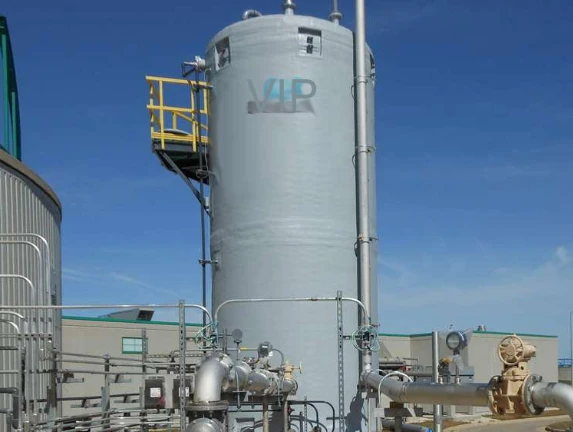
-
 Afrikaans
Afrikaans -
 Albanian
Albanian -
 Amharic
Amharic -
 Arabic
Arabic -
 Armenian
Armenian -
 Azerbaijani
Azerbaijani -
 Basque
Basque -
 Belarusian
Belarusian -
 Bengali
Bengali -
 Bosnian
Bosnian -
 Bulgarian
Bulgarian -
 Catalan
Catalan -
 Cebuano
Cebuano -
 China
China -
 China (Taiwan)
China (Taiwan) -
 Corsican
Corsican -
 Croatian
Croatian -
 Czech
Czech -
 Danish
Danish -
 Dutch
Dutch -
 English
English -
 Esperanto
Esperanto -
 Estonian
Estonian -
 Finnish
Finnish -
 French
French -
 Frisian
Frisian -
 Galician
Galician -
 Georgian
Georgian -
 German
German -
 Greek
Greek -
 Gujarati
Gujarati -
 Haitian Creole
Haitian Creole -
 hausa
hausa -
 hawaiian
hawaiian -
 Hebrew
Hebrew -
 Hindi
Hindi -
 Miao
Miao -
 Hungarian
Hungarian -
 Icelandic
Icelandic -
 igbo
igbo -
 Indonesian
Indonesian -
 irish
irish -
 Italian
Italian -
 Japanese
Japanese -
 Javanese
Javanese -
 Kannada
Kannada -
 kazakh
kazakh -
 Khmer
Khmer -
 Rwandese
Rwandese -
 Korean
Korean -
 Kurdish
Kurdish -
 Kyrgyz
Kyrgyz -
 Lao
Lao -
 Latin
Latin -
 Latvian
Latvian -
 Lithuanian
Lithuanian -
 Luxembourgish
Luxembourgish -
 Macedonian
Macedonian -
 Malgashi
Malgashi -
 Malay
Malay -
 Malayalam
Malayalam -
 Maltese
Maltese -
 Maori
Maori -
 Marathi
Marathi -
 Mongolian
Mongolian -
 Myanmar
Myanmar -
 Nepali
Nepali -
 Norwegian
Norwegian -
 Norwegian
Norwegian -
 Occitan
Occitan -
 Pashto
Pashto -
 Persian
Persian -
 Polish
Polish -
 Portuguese
Portuguese -
 Punjabi
Punjabi -
 Romanian
Romanian -
 Russian
Russian -
 Samoan
Samoan -
 Scottish Gaelic
Scottish Gaelic -
 Serbian
Serbian -
 Sesotho
Sesotho -
 Shona
Shona -
 Sindhi
Sindhi -
 Sinhala
Sinhala -
 Slovak
Slovak -
 Slovenian
Slovenian -
 Somali
Somali -
 Spanish
Spanish -
 Sundanese
Sundanese -
 Swahili
Swahili -
 Swedish
Swedish -
 Tagalog
Tagalog -
 Tajik
Tajik -
 Tamil
Tamil -
 Tatar
Tatar -
 Telugu
Telugu -
 Thai
Thai -
 Turkish
Turkish -
 Turkmen
Turkmen -
 Ukrainian
Ukrainian -
 Urdu
Urdu -
 Uighur
Uighur -
 Uzbek
Uzbek -
 Vietnamese
Vietnamese -
 Welsh
Welsh -
 Bantu
Bantu -
 Yiddish
Yiddish -
 Yoruba
Yoruba -
 Zulu
Zulu
Exploring the Features of Food Grade Fiberglass Equipment for Safety and Efficiency
A Closer Look at Fiberglass Food Grade Equipment Features and Advantages
In the food industry, maintaining strict hygienic standards is paramount. As businesses strive to ensure the safety and quality of their products, the choice of materials used in food processing and storage has become increasingly important. One material that is gaining popularity in this sector is fiberglass, particularly in food-grade applications. This article explores the features and advantages of fiberglass food-grade equipment, highlighting why it is a top choice for many food manufacturers.
Fiberglass, a composite material made from glass fibers and resin, boasts exceptional properties that make it well-suited for food industry applications. One of its primary features is its resistance to corrosion and chemical damage. Unlike metal equipment, which can rust or erode when exposed to harsh cleaning chemicals or acidic foods, fiberglass maintains its integrity and appearance over time. This durability ensures a longer lifespan for the equipment, reducing the need for frequent replacements and maintenance.
Another significant advantage of fiberglass food-grade equipment is its non-porous surface. This characteristic makes it highly resistant to bacterial growth, as there are no tiny crevices for pathogens to lodge in. In the food processing environment, where cleanliness is crucial, the smooth surface of fiberglass allows for easy cleaning and sanitation. Regular washing with standard cleaning agents effectively removes contaminants, helping to maintain compliance with health regulations and standards.
fiberglass food grade equipment a closer look at its features and

The lightweight nature of fiberglass also offers practical benefits. Equipment made from fiberglass is easier to handle and maneuver, reducing the risk of workplace injuries during installation and cleaning. Additionally, its lightness contributes to lower transportation costs and ease of shipping, particularly for large units. This practicality is especially vital for smaller food businesses that may not have the resources for heavy-duty handling equipment.
Moreover, fiberglass food-grade equipment can be molded into various shapes and sizes, providing versatility in design. Manufacturers can customize their equipment to meet specific needs, whether it’s for storage tanks, processing tables, or conveyance systems. This adaptability allows companies to optimize their production processes and create more efficient workflows, ultimately leading to increased productivity.
Another noteworthy feature of fiberglass is its thermal insulation properties, which can be particularly beneficial when dealing with temperature-sensitive food products. By using fiberglass equipment, businesses can better maintain the desired temperature for both hot and cold items, which is critical in preventing spoilage and ensuring food safety.
In conclusion, fiberglass food-grade equipment stands out in the food industry due to its numerous benefits, including corrosion resistance, ease of cleaning, lightweight design, customization options, and thermal insulation properties. As food safety continues to be a priority for manufacturers worldwide, adopting fiberglass solutions can significantly enhance operational efficiency and ensure compliance with rigorous health standards. Ultimately, investing in high-quality fiberglass equipment can result in safer food products, promoting consumer trust and business success.
Latest news
-
Exploring the Benefits of Top Hammer Drifter Rods for Enhanced Drilling PerformanceNewsJun.10,2025
-
High-Precision Fiberglass Winding Machine for GRP/FRP Pipe Production – Reliable & Efficient SolutionsNewsJun.10,2025
-
FRP Pipes & Fittings for Shipbuilding - Corrosion-Resistant & LightweightNewsJun.09,2025
-
Premium FRP Flooring Solutions Durable & Slip-ResistantNewsJun.09,2025
-
Premium Fiberglass Rectangular Tanks Durable & Lightweight SolutionNewsJun.09,2025
-
Tapered Drill String Design Guide Durable Performance & UsesNewsJun.09,2025









